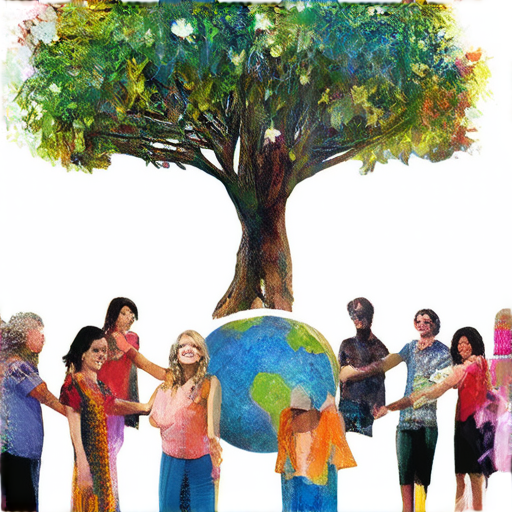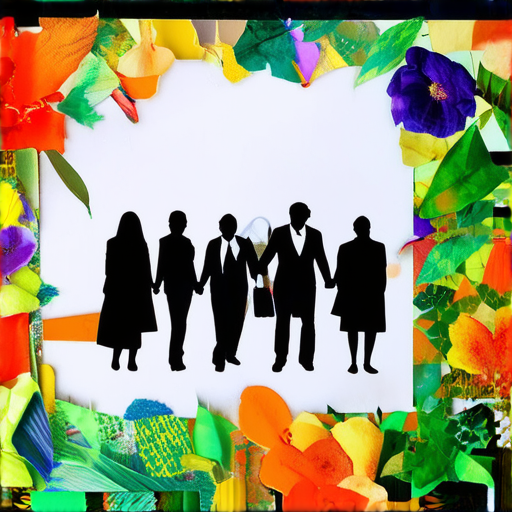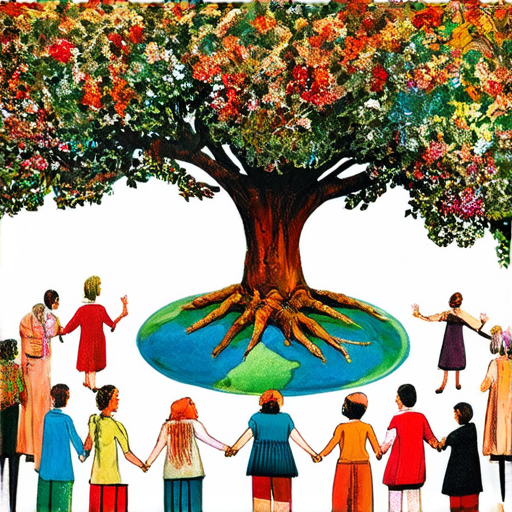In today’s complex and ever-changing world, social justice events play a vital role in shaping our understanding of the world around us and inspiring meaningful change. From grassroots movements to large-scale protests, these events bring people together to raise awareness about pressing social issues, advocate for human rights, and push for systemic reform. Whether it’s fighting against racial inequality, promoting environmental sustainability, or advocating for women’s empowerment, social justice events serve as powerful catalysts for positive transformation and collective action.

What is a Social Justice Event?
A social justice event is a gathering or activity aimed at promoting equality, fairness, and human rights, often focusing on addressing systemic injustices and advocating for positive change.
-
Types of Social Justice Events
- Rallies and protests
- Conferences and workshops
- Fundraising campaigns and charity events
- Cultural festivals and celebrations
-
Purpose of Social Justice Events
- To raise awareness about social issues
- To mobilize communities and individuals to take action
- To promote education and advocacy
- To support marginalized groups and advocate for their rights
-
Examples of Social Justice Events
- The Women’s March
- The Black Lives Matter movement
- The LGBTQ+ Pride parade
- The Climate Change Summit
-
Key Characteristics of Social Justice Events
- Inclusivity and accessibility
- Diversity and representation
- Education and awareness-raising
- Community engagement and participation
-
Importance of Social Justice Events
- To bring attention to important social issues
- To create a sense of community and solidarity
- To inspire action and advocacy
- To promote positive change and progress
-
Racial Equality
Racial equality remains a pressing issue globally, with systemic racism affecting communities worldwide.
- Police brutality and racial profiling continue to plague marginalized communities.
- Economic disparities persist, with people of color facing significant barriers to education and employment opportunities.
- Systemic inequalities in healthcare, housing, and education perpetuate cycles of poverty and disadvantage.
-
LGBTQ+ Rights
The struggle for LGBTQ+ rights continues, with many individuals facing discrimination and marginalization.
- Transgender individuals face significant challenges in accessing healthcare, education, and employment opportunities.
- LGBTQ+ individuals are disproportionately affected by mental health issues, substance abuse, and homelessness.
- Civil rights and marriage equality remain contentious issues, with ongoing debates around legislation and policy.
-
Women’s Empowerment
Women’s empowerment is crucial for achieving social justice, yet significant obstacles remain.
- Gender-based violence, including domestic abuse and human trafficking, affects millions worldwide.
- Economic disparities persist, with women earning significantly less than men in many industries.
- Limited access to education and reproductive healthcare hinders women’s ability to participate fully in society.
-
Migrant and Refugee Rights
Migrant and refugee rights are critical for promoting social justice and human dignity.
- Forced migration and displacement due to conflict, persecution, or economic hardship affect millions worldwide.
- Refugees face significant challenges in accessing basic necessities like food, shelter, and healthcare.
- Migrant workers are often exploited, with limited access to fair wages, safe working conditions, and social protections.
-
Environmental Justice
Environmental justice is essential for promoting social justice and protecting the planet.
- Climate change disproportionately affects vulnerable populations, exacerbating existing social and economic inequalities.
- Pollution and environmental degradation harm local communities, particularly those living near industrial sites.
- Sustainable development and climate action require inclusive decision-making processes and community engagement.
-
Volunteer with Local Organizations
Partner with local non-profits, charities, and advocacy groups working towards causes close to your heart. Research organizations in your area, such as Amnesty International or Greenpeace, and reach out to learn about volunteer opportunities.
-
Participate in Peaceful Protests and Rallies
Join peaceful protests and rallies organized around social justice issues, such as racial equality, women’s rights, or climate change. These events raise awareness, mobilize communities, and bring attention to critical issues.
-
Engage in Online Activism
Utilize social media platforms to amplify marginalized voices, share educational content, and participate in online campaigns. Leverage hashtags, tag relevant organizations, and engage in respectful discussions to promote social justice.
-
Support Marginalized Communities
Donate to reputable organizations serving marginalized populations, such as refugees, LGBTQ+ individuals, or people with disabilities. Your financial support can help bridge the gap in essential services and advocate for policy changes.
-
Promote Education and Awareness
Organize workshops, lectures, or film screenings to educate others about social justice issues. Share personal experiences, invite guest speakers, and facilitate open discussions to foster empathy and understanding.
-
Advocate for Policy Changes
Contact your representatives, sign petitions, and participate in town hall meetings to push for policy reforms addressing social injustices. Use your voice to demand change and hold elected officials accountable.
-
Practice Self-Care and Allyship
Cultivate self-awareness, listen to marginalized voices, and acknowledge your own biases. Prioritize self-care, seek mentorship, and surround yourself with like-minded individuals who share your commitment to social justice.
-
Develop Critical Thinking and Media Literacy
Hone your critical thinking skills by analyzing news sources, evaluating information, and recognizing propaganda. Stay informed about current events, and develop media literacy to effectively navigate complex social justice issues.
-
Foster Inclusive Spaces and Dialogue
Create safe environments for open discussion, respect differing opinions, and encourage constructive dialogue. By doing so, you’ll help break down barriers and foster a culture of inclusivity and empathy.
-
Sustainably Engage in Activism
Avoid burnout by setting realistic goals, prioritizing self-care, and taking regular breaks. Sustain your activism by staying motivated, learning from setbacks, and celebrating small victories along the way.
- Fighting against systemic racism in the United States, where African Americans face disparities in education, employment, and healthcare access.
- Opposing discriminatory laws and policies targeting marginalized groups, such as LGBTQ+ individuals and women.
- Advocating for climate justice, addressing the disproportionate impact of environmental degradation on low-income communities and communities of color.
- Addressing economic inequality, promoting fair labor practices, and advocating for living wages and benefits for workers.
Top 5 Social Justice Issues
I believe that addressing social injustices requires a multifaceted approach, focusing on various aspects of society.

Advancing Social Justice in Your Community
We’re committed to empowering individuals to drive positive change through grassroots activism and community engagement.

Example of Social Justice Situation
Social justice situations can manifest in various ways, affecting individuals and communities worldwide.
These examples illustrate the complexities of social justice, highlighting the need for collective action and advocacy to create a more equitable society.
Grassroots Activism and Alternative Media
Organizations like Movement for Black Lives and Greenpeace USA work tirelessly to raise awareness and mobilize support for social justice causes.
Platforms like 99 Percent Media amplify marginalized voices, providing a space for storytelling and community engagement.
Key Players in Social Justice Movements
These individuals have made significant contributions to social justice movements, inspiring generations to take action and strive for a more just and equitable world.
What is a Social Justice Issue in Today’s Society?
As we navigate the complexities of modern life, various social justice issues continue to plague our communities, affecting individuals and groups worldwide.
- Racial Inequality: Systematic racism, police brutality, and social inequity remain pressing concerns, particularly in the wake of high-profile incidents and ongoing movements like Black Lives Matter.
- Economic Disparities: Poverty, income inequality, and access to education and job opportunities continue to exacerbate social and economic disparities, disproportionately affecting marginalized communities.
- Climate Change and Environmental Degradation: The devastating impact of human activities on the environment, including rising temperatures, pollution, and loss of biodiversity, threatens the very foundation of our planet and its inhabitants.
- Food Insecurity and Access to Basic Needs: Millions of people around the world struggle to access basic necessities like clean water, nutritious food, and healthcare, highlighting the need for greater support and advocacy.
In light of these pressing issues, it’s essential to acknowledge the work of organizations like Amnesty International and Greenpeace, which tirelessly advocate for human rights and environmental protection.
At 99 Percent Media, we recognize the importance of amplifying diverse voices and promoting inclusive dialogue to drive meaningful change and foster a more just and equitable society.
- We believe that every individual deserves equal access to opportunities, resources, and services, regardless of their background, identity, or socioeconomic status.
- We strive to create a platform that showcases the experiences and perspectives of underrepresented communities, challenging systemic injustices and promoting empathy and understanding.
- We collaborate with experts, activists, and thought leaders to develop informed and nuanced content that addresses the complex intersections between social justice, politics, and culture.
- We encourage our audience to engage in respectful and constructive conversations, fostering a sense of community and collective responsibility for creating positive change.
By working together, we can build a more compassionate and equitable world, where everyone has the opportunity to thrive and reach their full potential.

Real Life Examples of Justice
Justice is a multifaceted concept that encompasses various aspects of human society, including fairness, equality, and morality.
-
Civil Rights Movement
The Civil Rights Movement in the United States during the 1950s and 1960s is a prime example of justice in action. Activists fought tirelessly for equal rights and opportunities for African Americans, leading to landmark legislation such as the Civil Rights Act of 1964 and the Voting Rights Act of 1965.
-
Martin Luther King Jr.’s Leadership
Martin Luther King Jr. was a prominent leader in the Civil Rights Movement, advocating for nonviolent civil disobedience and delivering powerful speeches, including his iconic “I Have a Dream” speech.
-
Desegregation of Public Facilities
The desegregation of public facilities, such as restaurants, buses, and restrooms, marked significant milestones in the struggle for racial equality.
-
-
Environmental Justice
Environmental justice refers to the fair distribution of environmental benefits and burdens among different communities. A notable example is the movement against pollution in low-income neighborhoods, which has led to increased awareness and advocacy for cleaner air and water.
-
Community-Led Initiatives
Community-led initiatives, such as the creation of community gardens and green spaces, have empowered residents to take control of their environment and promote sustainability.
-
Policy Reforms
Policy reforms, such as the Clean Air Act and the Clean Water Act, have helped to reduce pollution and protect public health.
-
-
Economic Justice
Economic justice seeks to address income inequality and promote fair labor practices. A notable example is the Fight for $15 movement, which advocates for a living wage and better working conditions for low-wage workers.
-
Labor Unions
Labor unions have played a crucial role in promoting economic justice by negotiating better wages and benefits for workers.
-
Minimum Wage Laws
Minimum wage laws have helped to ensure that workers earn a fair income and can afford basic necessities.
-
These examples illustrate the diverse ways in which justice manifests in everyday life, from civil rights to environmental protection and economic empowerment.

0 Comments